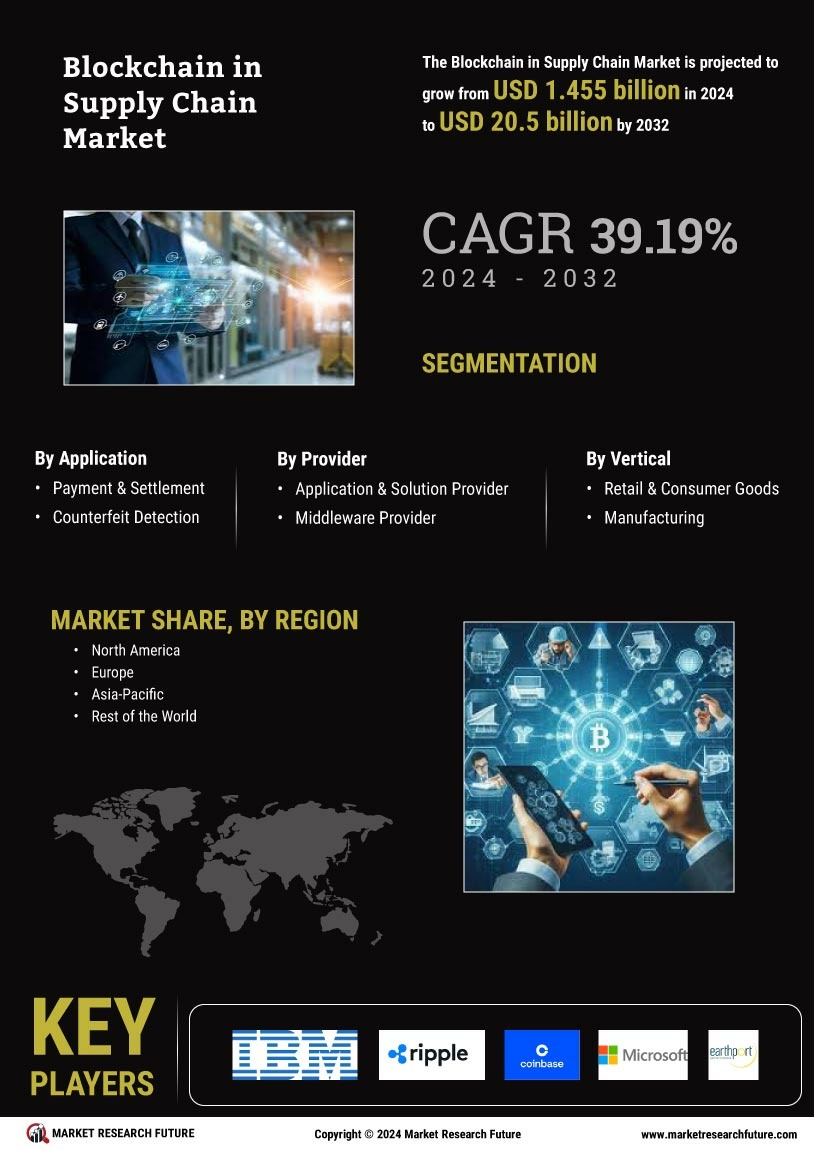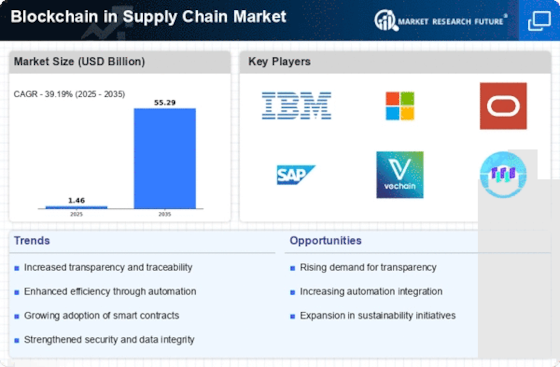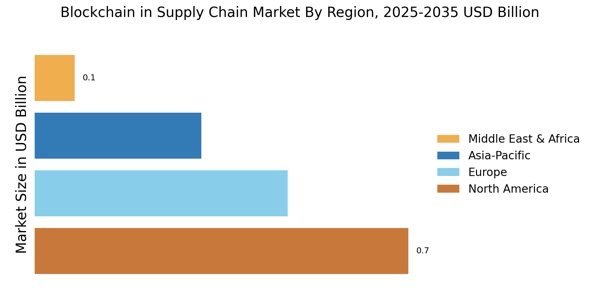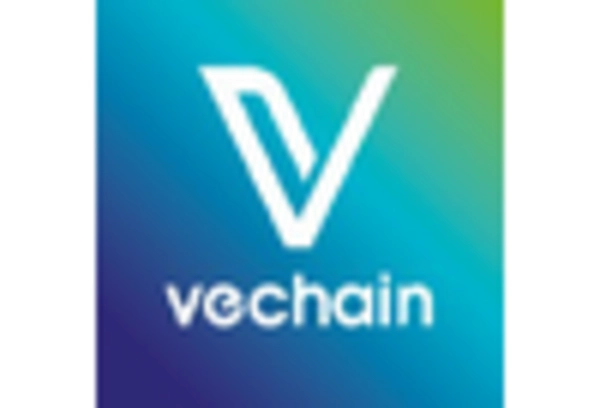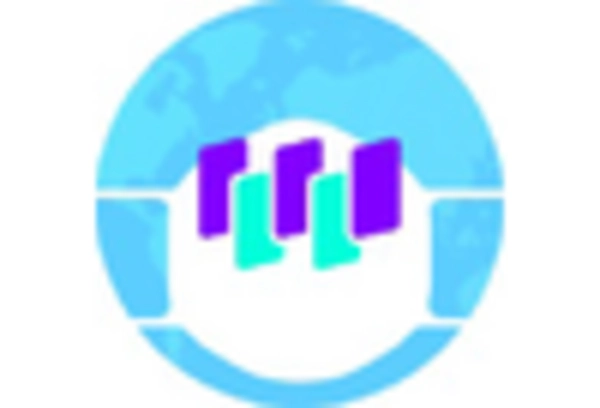Consumer Demand for Authenticity
The Blockchain in Supply Chain Market is responding to a growing consumer demand for authenticity and ethical sourcing. As consumers become more conscious of the origins of their products, companies are leveraging blockchain to provide verifiable information about product provenance. This transparency not only enhances brand loyalty but also allows businesses to differentiate themselves in a crowded marketplace. In 2025, it is anticipated that the market for blockchain solutions focused on product authenticity will expand significantly, driven by consumer preferences for transparency and ethical practices.
Enhanced Security and Fraud Prevention
The Blockchain in Supply Chain Market is increasingly recognized for its potential to enhance security and prevent fraud. By utilizing decentralized ledgers, stakeholders can ensure that all transactions are immutable and transparent. This characteristic significantly reduces the risk of tampering and unauthorized access to sensitive data. In 2025, it is estimated that the implementation of blockchain technology could reduce fraud-related losses in supply chains by up to 30%. As companies seek to protect their assets and maintain consumer trust, the demand for blockchain solutions is likely to grow, driving innovation and investment in this sector.
Improved Efficiency and Cost Reduction
The Blockchain in Supply Chain Market is poised to revolutionize operational efficiency. By automating processes through smart contracts, companies can streamline transactions and reduce the time required for reconciliation. This efficiency translates into cost savings, as businesses can minimize delays and errors associated with traditional supply chain management. Reports indicate that organizations adopting blockchain technology may experience a reduction in operational costs by approximately 20%. As competition intensifies, the drive for efficiency will likely propel further adoption of blockchain solutions across various sectors.
Integration with Emerging Technologies
The Blockchain in Supply Chain Market is witnessing a trend towards integration with other emerging technologies such as IoT and AI. This convergence allows for enhanced data collection and analysis, leading to more informed decision-making. For instance, IoT devices can provide real-time data on inventory levels, which can be recorded on a blockchain for greater accuracy and reliability. As organizations seek to harness the full potential of their supply chains, the integration of blockchain with these technologies is likely to drive innovation and create new opportunities in the market.
Regulatory Compliance and Risk Management
The Blockchain in Supply Chain Market is increasingly influenced by the need for regulatory compliance. As governments and regulatory bodies impose stricter guidelines on supply chain practices, blockchain technology offers a viable solution for ensuring adherence to these regulations. By providing a transparent and auditable trail of transactions, companies can demonstrate compliance more effectively. In 2025, it is projected that the market for blockchain solutions aimed at regulatory compliance could reach a valuation of over 5 billion dollars. This trend suggests that businesses will prioritize blockchain adoption to mitigate risks associated with non-compliance.
